Learn about what others have chosen to study and do through this innovative program.

NGOs in Somaliland: A critique of NGO-led development
Supervisor: Justin Podur

PhD 1997
Professor of Environmental Thought and Culture; Steven Rubenstein Professor for Environment and Natural Resources, University of Vermont
Adrian Ivakhiv is the Steven Rubenstein Professor for Environment and Natural Resources, and a Professor of Environmental Thought and Culture at the University of Vermont’s Rubenstein School. His research is focused at the intersections of ecology, culture, media, religion, and philosophy. His books include Claiming Sacred Ground: Pilgrims and Politics at Glastonbury and Sedona (Indiana University Press, 2001), Ecologies of the Moving Image: Cinema, Affect, Nature (Wilfrid Laurier University Press, 2013), and the forthcoming Shadowing the Anthropocene: Eco-Realism for Turbulent Times (Punctum Books, 2018). Prof. Ivakhiv has served as president of the Environmental Studies Association of Canada, an executive editor of the Encyclopedia of Religion and Nature (Thoemmes Continuum Press, 2005), and on the editorial boards of several journals and two book series in the environmental humanities.

PhD 2021
As a Celtic and L’nu scholar, part of what motivated Aedan’s doctoral research is his ongoing commitment to create mutual recognition between the Irish and the Mi’kmaq that can not only support Mi’kmaq sovereignty but also help to address the way that the historical harms that the Irish have participated in during the colonization of Mi’kma’ki. To help create a resource for this work,his dissertation provides geographic and socioeconomic overviews of both regions and includes a discussion of key events in both regions that demonstrate that the histories of colonization in Éire and Mi’kma’ki are interwoven (while also exploring the role of the Irish in colonization).
Read more on scholar’s research:
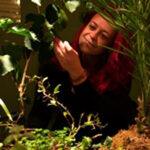
Read more on scholar’s research:

MES 2020
Allison Evans is a new EUC graduate whose research primarily focused on the rapid proliferation of tent encampments in downtown Toronto parks during the global COVID-19 pandemic and how the pandemic—exacerbated by the ongoing affordable housing crisis—brought urban informality and inequality to the surface. For unhoused people experiencing homelessness, sheltering at ‘home’ often meant choosing between congregate-style emergency shelters—and the risk of contracting COVID-19—or living illegally (and informally) in downtown parks.
Read more on scholar’s research:

PhD 2020
Andrew Zealley holds a PhD from the Faculty of Environmental and Urban Change. His research engages with HIV and AIDS, queer identity, the body, and notions of self-risk-taking. He previously completed an MFA in Interdisciplinary Studies at OCAD University and is a recipient of a SSHRC Doctoral Fellowship for his research project “Risky Beeswax: Artistic Responses to the Biopolitics of HIV and AIDS.” His dissertation was recently awarded the 2020 Barbara Godard Prize for Best Dissertation in Canadian Studies.
Read more on scholar’s research:

MES 2015
Artist and Executive Director of the Whippersnapper Gallery
Anique Jordan’s vision and voice is making a remarkable impact in Toronto’s art community very early in her art career. Interested in alternative systems of survival, she started her MES with the intent of continuing her work in entrepreneurship and Community Economic Development with Black communities as an urban planner. Calling her time in FES transformative, she has emerged with her goal intact but with an unanticipated creative and cultural tool set to do the work. A first generation Canadian, Jordan is intensely aware of the multitude of sacrifices her Trinidadian mother made to build a life in Canada. As a result, her academic path was focused on having a traditional career.

Research Topic: Degrowth and Community-based Climate Activism
Name of Supervisor: Lina Brand-Correa

PhD 2016
Instructor, York University
Azam is a Research Affiliate at the City Institute and an Instructor at the Faculty of Liberal Arts and Professional Studies York University. She worked as a professional urban planner for fifteen years before she started her doctoral program. She received her PhD in June 2016 studying the convergence of developmentalism, worlding practices, and neoliberalism in the urban reforms in Tehran. Her research interests include modernization and production of space, urban and regional governance, social housing, gender and space and research methods.
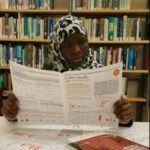
PhD 2023
Inclusive Disaster Risk Management Consultant, The World BankThe World Bank
Balikisu Osman is a Vanier scholar and an international doctoral student in Environmental Studies at EUC. Before starting her PhD, she worked for the United Nations International Fund for Agricultural Development (IFAD) in Rome, Italy, and the United Nations Office for Project Services (UNOPS) in Myanmar, mainly on food security program implementation and agricultural risk management policy analysis, knowledge mobilization and dissemination. She holds a BA in Geography and Rural Development and two master’s degrees, one in International Development, Poverty, and Inequality, and the other in Sustainability Management. Professor Patricia Perkins is mentoring and supervising Osman on her doctoral research.
Read more on scholar’s research:

Read more on scholar’s research:
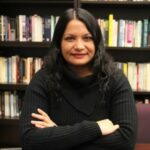
PhD 2005
Professor & Canada Research Chair in Global Women’s Issues, University of Western Ontario
Bipasha Baruah is the Canada Research Chair in Global Women’s Issues and a tenured full professor in the Department of Women’s Studies and Feminist Research at the University of Western Ontario. Dr. Baruah conducts interdisciplinary research on gender, development and globalization; women and work; and social, political and economic inequality. Her research on women and property ownership and women’s employment in renewable energy and resource efficiency has influenced policy within governments, financial institutions and non-governmental organizations. In addition to her academic career, Dr. Baruah has 12 years of professional international development experience with organizations such as the United Nations Development Program, Asian Development Bank, World Resources Institute, The Energy and Resources Institute, Self-Employed Women’s Association, the Association for Women’s Rights in Development, the International Development Research Centre of Canada and Global Affairs Canada.

Research Topic: The Caribbean Urban Phenomenon: Trinidad’s Development and Climate Change
Name of Supervisor: Liette Gilbert

PhD 2016
Postdoctoral Research Fellow, University of Regina
Brett Dolter is an ecological economist specializing in climate and energy policy research. He has published in journals such as Energy Policy and Ecological Economics. Brett completed his PhD degree at York University where his research focused on pathways for greening the Saskatchewan grid. He holds a Masters in Economics from the University of Victoria and a Masters in Resource Management and Environmental Studies from UBC.
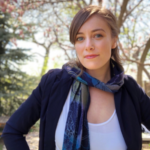
MES 2011
Executive Director, EcoSource
While completing an undergraduate degree in visual art, I had the opportunity to participate in the community arts certificate program (now the Certificate in Cultural and Artistic Practice for Environmental and Social Justice) led by the Faculty of Environmental and Urban Change. This program encouraged Britt to combine her passion for the arts with her commitment to environmental and social change and inspired Britt to use her skills as an artist to help build more sustainable and connected communities. After graduating with a BFA in 2009, Britt decided to continue this learning by completing the Master in Environmental Studies. What excited her most about this program was the ability to create a self-directed plan of study that synthesized my interdisciplinary interests in the arts, environment, and education.

MES 1987
President, Ivey Foundation
As a student in York Professor Peter Victor’s ecological economics class, Lourie learned that the economy isn’t just a thing on its own,. The economy is a construction of society, which in turn is bounded by our environment. That’s a concept that’s still not well understood and sustainability needs to be reframed in that way. In the years since he was a York student, Lourie has applied the cutting edge and provocative thinking he learned in Victor’s class to change the way Canadians view climate change. He is the co-author of the international bestseller Slow Death by Rubber Duck and its follow-up Toxin Toxout, which tackle head-on the wide array of harmful chemicals found in everyday products and offer solutions around what can be done about it.
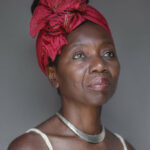
PhD 2022
Artist, Camille Turner Studios
Camille Turner is a Canadian artist who explores themes related to race, space, home, and belonging. Her work combines Afrofuturism and historical research. She is a master’s and PhD graduate of York University’s Environmental Studies program, and received the Toronto Biennial’s Artist Prize for her contribution to the 2022 Toronto Biennial of Art exhibit, the second chapter of a two-part biennial—“What Water Knows, the Land Remembers.”

MES 2000
Executive Director, TD Friends of the Environment Foundation
The MES program really gave me the flexibility to create a program of study that filled the gaps in my experience and built the foundation for my career. Coming out of a BSc in Biology, I had a strong background in conservation science, but knew that I needed to know a lot more about planning, economics and social psychology to be able to successfully work with on-the-ground projects. The program provided the space to do that and really set me up to get involved in community work. And of course, I graduated with a ready-made network having spent 2 years getting to know others aiming to work in similar fields.
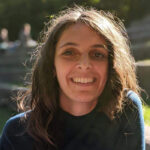
MES 2020
Caterina graduated from the Faculty of Environmental Studies in October 2020 and holds an undergraduate degree in Equity studies from the University of Toronto. She is interested in community-based research and relationship building and is honored to have supported research projects concerning sexual health, wellbeing, harm reduction for and with Indigenous and non-Indigenous youth alongside Sarah Flicker. She currently is coordinating research at the Communities, Alliances, & Networks, formally the Canadian Aboriginal AIDS Network (CAAN).
Read more on scholar’s research:

Research Topic: Participatory Action Research on racial justice for migrant agricultural workers
Supervisor: Sarah Rotz

Read more on scholar’s research:
Research Spotlight: Making With Place: Community arts as critical pedagogies of place

Read more on scholar’s research:

MES 2021
Corals Zheng graduated with a Master of Environmental Studies in Planning—with a concentration in Urban and Regional Development. Her research interests focus on land-use in Toronto, and her master’s project seeks to examine neighbourhood change and the studentification of the West Chinatown neighbourhood. This research was funded by Mitacs and the Canada-China Initiatives Fund at the York Centre for Asian Research (YCAR) with the supervision of Professor Luisa Sotomayor as part of the StudentDwellTO project.
Read more on scholar’s research:

Research Topic: Transitioning Mid-Northern Ontario Energy System Policy: Blending Affordability and Climate Change
Supervisor: Mark Winfield

PhD 2015
Instructor, Centennial College School of Media, Art, & Design
Since completing her doctorate, Edie Steiner has presented her research and media at conferences including How Class Works at the Centre for Study of Working Class Life, SUNY Stony Brook, 2016, and at Rust/Recovery: Works of Resistance, the 2017 conference of the Association for the Study of Literature and Environment (ASLE), Wayne State University, Detroit. In 2016, she served as mentor on documentary film workshops, Docs North, supported by Lakehead University. Dr. Steiner had published book reviews and media in The Goose, the official publication of ALECC (Association for Literature, Environment, and Culture in Canada), and contributed a chapter, “Requiem for Landscape” in Working on Earth: Class and Environmental Justice (University of Nevada Press, 2015).

Research Topic: Green Gentrification in Toronto
Supervisor: Laura Taylor

Research Topic: Polycentrism, 15-minute Cities, Equity, Gentrification & Intensification, Complete Communities.
Name of Supervisor: Roger Keil
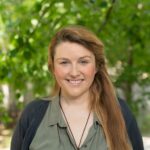
Climate Action Pedagogy: A Critical Pedagogy Model for Generation Climate
Supervisor: Kate Tilleczek
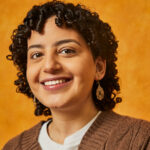
MES 2022
Farida Rady is a MES alumna researcher, writer, and artist. Rady’s interests are centred on questions of agency in the city and extend to housing justice, migrations, memory, and counter-narratives. Rady explores these interests within the spectrum of academic and creative processes. The graduate work portfolio was conducted in the MES Planning Program under the supervision of Professor Luisa Sotomayor.
Read more on scholar’s research:

PhD 1995
Professor, University of Pennsylvania
I am currently Professor at the University of Pennsylvania’s School of Social Policy and Practice. I specialize in the economics of the Nonprofit Sector, which includes philanthropy and volunteering. I have served as editor in chief of the journal in the area (NVSQ), and currently am the Director of the Ph.D. program at my school. I have since leaving FES, published over 80 peer-reviewed papers and edited or written five books, including a children’s book Sandy’s Incredible Shrinking footprint about the ecological footprint, first learned about at EUC!
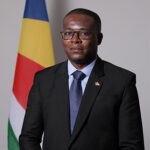
MES 2003
Minister for Agriculture, Climate Change & Environment on the island of Seychelles
Flavien Joubert is currently the Minister for Agriculture, Climate Change & Environment on the small nation island of Seychelles. He completed a Master of Environmental Studies (MES) in the Faculty of Environmental & Urban Change at York University in 2003.
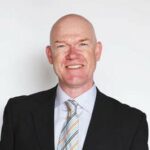
Retrofitting Concrete Utopias: Climate Change Adaptation for Mid-Century Housing Stock
Supervisor: Roger Keil

MES 2017
Principal Consultant, HY Mire Consulting
My experience in MES program prepared me to strategically and effectively navigate institutions. From learning how to secure funding and scholarships, to understanding labour movements and unions, working with professors and meeting course requirements—these were additional skills I learned outside that classroom while obtaining my degree. Now more than ever in the work I do I’m able to apply these skills in order to navigate institutions and organize effectively to make positive change. During my time in the program, I took advantage of the opportunity to take courses at other institutions, such as Ryerson and University of Toronto. This allowed me to work and study with visiting scholars in York and in Toronto, who were instrumental for my research and work in the program but also in the community.

MES 2021
Jc Elijah (Eli) M. Bawuah graduated with a MES degree and identifies as an Afro-Asian queer urban planner whose work explores the intersections of socio-spatial dynamics, policy, and equity. A recent recipient of the Robert J. Tiffin Student Leadership Award that recognizes students’ contributions to the growth, development and vitality of the YorkU community, Eli has served as the Graduate Environmental Studies Students Association (GESSA) Chair and is currently a co-founder of the Mentorship Initiative for Indigenous and Planners of Colour (MIIPOC), coordinating events that create space which enables voices from racialized, low-income, and other vulnerable groups to be valued and empowered. As student liaison for the Ontario Professional Planners Institute (OPPI), he started the first student-led newsletter, connecting over 500 planning students from various universities across Ontario. He has advocated for more affordable housing and accessible public space for women, trans folks, and low-income communities through his collaborations working for award-nominated author and placemaker, Jay Pitter.
Read more on scholar’s research:
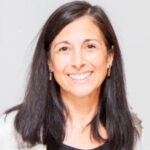
PhD 2015
Senior Research Associate, Johnson Shoyama Graduate School of Public Policy
For the last 3-1/2 years Jennifer has been working with Trent University’s Department of Indigenous Studies. As a Research Associate, she has been involved in a community-driven project, funded by CIHR, with Eabametoong First Nation in northern Ontario. The program aimed to contribute toward improving community health and well-being through initiatives prioritized by Chief and Council. Recently, Trent’s School for Indigenous Studies asked her to join a new project with First Nations University of Canada, which is launching a National Centre for Collaboration in Indigenous Education (NCCIE). As Project Director, she is recruiting Regional Leads across the country who, in turn, hire student and youth researchers to gather stories in urban, rural and remote communities, profiling exemplars of excellence in Indigenous education. These profiles are digitally recorded and will be shared on a website for educators to learn about effective educational programs for all ages and all peoples on Indigenous topics, strengthening education to close the gap and for reconciliation. Most recently, she has been hired by the Johnson Shoyama Graduate School of Public Policy as a Senior Research Associate. She looks forward to continuing the work of the NCCIE as well as contributing to JSGS initiatives.

MES 1999
Former Chief Planner and Executive Director of the City of Toronto
As Chief Planner and Executive Director of the City of Toronto, Jennifer Keesmaat (MES ’99) has changed the local dialogue on planning and urban design from frustrations and complaints about planning into an energized conversation full of hope and optimism for North America’s fifth largest city. Her dedication, energy and visionary approach has put place-making on the map for many Torontonians and helped steer Toronto towards becoming a place where all can flourish. A vocal proponent of walkable, livable cities, she was in high demand as a speaker even before her City Hall days, chairing an annual summit on revitalizing downtowns and holding roundtables on planning practices with students.
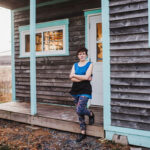
MES 2022
Read more on scholar’s research:
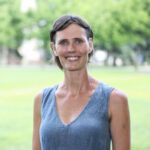
PhD 2008
Associate Professor, University of Manitoba
Jocelyn Thorpe is an associate professor in women’s and gender studies and history at the University of Manitoba in Winnipeg. Her research draws from critical race, feminist, and environmental studies scholarship to examine the history and legacies of, as well as challenges to, colonialism in the Canadian context. She seeks to understand how past discourses and relationships of power lead to and naturalize present-day social and environmental inequities, and to open up possibilities for more just relationships among humans and between humans and the non-human world in which we live.

Research Topic: Embodied Kinesthetic Art Practices with Arboreal Kin
Supervisor: Leesa Fawcett
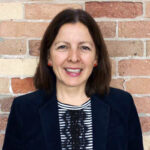
MES 2001
Director of the Environment, Chiefs of Ontario
Chiefs of Ontario’s Director of the Environment Kathleen Padulo (MES ‘01) is propelled by her passion for environmental issues and fueled by a sense of responsibility to fight the injustice of environmental racism against First Nations. As part of the first generation who wasn’t stolen from her family and forced into the residential school system, she feels her education was a great privilege that has helped her find a niche where her work can make a lasting impact. Communication is at the heart of her role with the Chiefs of Ontario. Padulo is tireless in her efforts to keep the Chiefs of Ontario’s 133 First Nations communities informed of the Government’s environmental policies that would impact their treaty rights, of funding opportunities, and of forums where their voices can be heard.
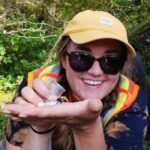
MES 2021
Kennedy Halvorson completed her research in the Native Pollinator Research Lab, focusing on pollination systems of Nicotiana rustica, a wild species of tobacco that has cultural and traditional significance to many Indigenous peoples across Canada. She currently works as research assistant for Finding Flowers and on the Food Policy for Canada project with Dr. Roderick MacRae that seeks a path towards a healthy, just, and sustainable food system.
Read more on scholar’s research:

Research Topic: Shaping climate philanthropy through cellphilm making
Name of Supervisor: Sarah Flicker
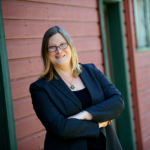
PhD 2004
Director, Food and Agriculture Institute; Canada Research Chair, Food Security and Environment
Lenore Newman is the director of the Food and Agriculture Institute at the University of the Fraser Valley where she holds a research chair in food and agriculture innovation. She is an Associate Professor in the School of Land Use and Environmental Change, and is an emeritus member of the Royal Society of Canada’s New College. Lenore researches agricultural land use policy, agricultural technology, and bioengineering in the food system. Lenore was a member of the BC Premier’s Food Security Task Force, sat on the BC Minister of Agriculture’s Advisory Committee, and consults widely on the future of food. She has published over sixty academic journal articles and book chapters, and her opinion pieces have been published in the Globe and Mail, the Vancouver Sun, and the Georgia Straight. She holds a BSc in Physics from the University of British Columbia and a PhD in Environmental Studies from Toronto’s York University. Lenore lives in Vancouver, Canada.
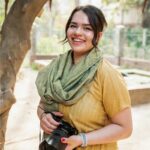
Research Topic: Climate Change and Urban Development: Dhaka’s Story of Development and Disaster
Supervisor: Mary Goitom

MES 2021
Mariyan Boychev is a MES alumnus and planner at the Urban Economy Forum whose research is directed towards climate change mitigation through sustainable urban planning. His past research focused on condominium development at the Liberty Village area in Toronto and its consequences for King Street, including an assessment of the results from the implementation of the Transit Pilot Project. His other scholarly interests include creating healthy, equitable, walkable, bicycle-friendly, sustainable and resilient zero carbon communities. His MES major paper was supervised by Prof. Jose Etcheverry.
Read more on scholar’s research:

MES 2019
Melina Damian is Communications Coordinator at Ontario Nature and Professor of Energy, Environment & Sustainable Development at Centennial College’s International Development Program. She has a Masters in Environmental Studies at York University and a graduate diploma in Environmental Education. Her graduate research focused on the impacts of anthropogenic debris pollution in marine and freshwater environments and critical wildlife nesting habitats with Gail Fraser as supervisor. She has worked and volunteered for various environmental organizations such as Wildlife Preservation Canada, Toronto Wildlife Centre, York Sustainable Enterprise Consultants, FoodShare and the Canadian Organization for Tropical Education and Rainforest Conservation.
Read more on scholar’s research:
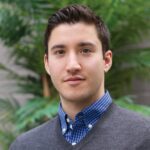
MES 2011
Policy, Research & Initiatives Advisor, York Region
My time with EUC was inspiring, thought-provoking and thoroughly enjoyable! The MES program at EUC prepared me for my career by emphasizing the importance and effectiveness of cultivating creativity, embracing multi-disciplinary perspectives, and applying systems thinking to tackle complex challenges. In addition to the Masters in Environmental Studies, I simultaneously earned Graduate Diplomas in Business and the Environment and Environmental and Sustainability Education. I enjoyed transitioning between the distinct learning environments fostered by EUC, the Schulich School of Business and the Faculty of Education. I appreciate and remember fondly my peers and professors examining topical challenges from interdisciplinary perspectives.

MES 2008
Contract Faculty Professor, School of Liberal Arts and Sciences, George Brown College
I grew up in the lakes and forests of the Simcoes and the Muskokas, and always felt a push to work in service of that which provided me so much adventure and refuge. I was drawn to study the environment at EUC because of the long history and strong reputation, the faculty and their work, and the openness and ability to conduct interdisciplinary work as a graduate student. I began and developed a deep love for teaching as a Teaching Assistant while being enrolled as student in the Master in Environmental Studies (MES) program at EUC. It was during my years working on Global Environmental Politics (ENVS 3340), Global Justice and International Humanitarianism (ENVS 4312) and Environmental Law (ENVS 3420) that my teaching practice was born. In support of that practice, it was also during this time that I volunteered with Planet in Focus (PIF), an environmental film festival which has its roots in EUC, and which has been instrumental to my work.

MES 2006
Chief Sustainability Officer, York University
A former Toronto City Councillor, York alum, and long-time champion of sustainability, Layton brings two decades of professional experience – and a lifetime of lived experience in advancing positive changes that contribute to a more equitable and sustainable world. In this new role, Layton will lead York’s Office of Sustainability, building on York’s strong track record. He will play a pivotal role in developing the University’s new Sustainability Strategy building on existing strengths and driving new initiatives through the University’s million-dollar Sustainability Innovation Fund.

PhD 2021
Read more on scholar’s research:

Park Perceptions and Racialized Realities: A photovoice exploration of experiences in greenspaces
The Park Perceptions and Racialized Realities project explores the experiences of racialized residents in public urban greenspaces in two Toronto neighborhoods. This photovoice research project was conducted in collaboration with Greenchange, Jane/Finch Centre, and the St. James Town Community Co-operative.
Webpage: yorku.ca/euc/research-projects/park-perceptions
Supervisor: Sarah Flicker
Read more on the scholar’s research:
- Exploring the experiences of racialized residents in two Toronto neighborhoods
- Green spaces, mental health, and well-being in the time of COVID-19

MES 2014
Energy Analyst, City of Markham
My time at EUC was rewarding. I had the opportunity to get involved in many different aspects of student life. I became involved with the student union, York Federation of Students, and was the Environmental Studies Director for 3 years. I volunteered my time as a Peer Mentor for incoming EUC students that may have wanted additional support adjusting to student life. I also got a part time job on campus working at The Underground, this experience allowed me to really get to know the university from a different perspective. From my experience, the MES program prepared me for my career journey in energy management. In the program, I had the freedom to develop my own path for my master’s journey. This may not be good for everyone, but for me it was helpful, as it allowed me to explore my own areas of interest. The MES program provides students the opportunity to take classes outside EUC and this allowed me the opportunity to complete the joint diploma program with the Schulich School of Business in Business and Sustainability This was a very valuable diploma and learning opportunity that provided skills to me that I was lacking.
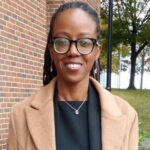
Placemaking as a Public Space Planning Tool in New Providence, Bahamas
(Supervisor: Liette Gilbert)

MES 2022
Since graduating from Glendon with a BA in Multidisciplinary Studies, Arsenault has pursued her environmental passion in creating a better world for future generations. When she became Manager of York’s Transportation & Student Services, she oversaw the transportation needs and projects of York’s community of students, faculty and staff. In 2016, she won the President’s Sustainability Leadership Award for revamping the university’s transportation modal split, before the opening of the University-Spadina subway on Keele campus. Pursuing the MES program has allowed Arsenault to pursue continuous and lifelong learning as well as complemented her experience as a sustainability professional in higher education.
Read more on scholar’s research:

Oriana Nanoa, BES 2015, MES 2022
Planner, Design Plan Services Inc.
The education I received during my academic studies was far reaching and relevant, I can safely attest to the fact that EUC has some of the most knowledgeable and well-rounded faculty members at York University. They helped me think critically about pressing issues affecting society and the environment through current research publications and even art mediums. The EUC program prepared me for my future in that I approach my career and projects equipped with a holistic perspective and a refined world view. The interdisciplinary structure of the program was one of the highlights for me as it developed my capacity to become a multi-faceted critical thinker.

PhD 2006
Associate Professor/Director of Global and Regional Studies, University of Vermont

‘New Era’ of Mass Transit: Governance, Suburbanization, and Regionalism in Toronto and Montréal
Supervisor: Roger Keil

Research Topic: Community Land Trusts, Affordable Homeownership, Advancing Equity
Supervisor: Teresa Abbruzzese
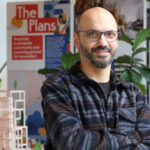
MES 1995
Director of Planning, Sidewalk Labs
I had a great time at EUC. It prepared me for everything that came after. I spent a lot of my time at EUC developing my program and figuring out what I wanted to study about planning and what I wanted to learn about cities. I worked with professors one on one and built the program which interested me. The MES program was very individualized that way, and the best part was all the critical thinking skills that I developed while I was there.

PhD 2011
Senior Research Associate, Centre for Global Child Health at SickKids Hospital AND Principal Consultant, Vitus Consulting
Dr. Roxana Salehi is passionate about helping organizations use research and evaluation evidence to make better decisions. As a global health research scientist, she and her team at Centre for Global Child Health at Hospital for Sick Children aim to train 1500 nurses and health workers in Ghana by 2020, all part of an ambitious national scale up of a nursing education program. Roxana founded her own consulting company in 2014, Vitus Consulting, (www.vitus.ca) and works with a range of local agencies on issues related to evaluation capacity building and program evaluation. Roxana has a PhD in Community Health from York University’s Faculty of Environmental Studies and certificates in statistical modeling form Inter-university Consortium in Social and Political Research at University of Michigan. She is a Canadian Evaluation Society Credentialed Evaluator.

MES 2005
President, Sabrina Dias Consulting
Sabrina Dias started her career as a ceramic engineer, and while she found the work interesting she knew she wanted her work make an impact around social good, and she felt she needed more than her engineering degree to make it happen. She went back to school to get her MES and pursue a career in sustainable development. Now Dias is well on her way to her dream of building her own consulting agency into the go-to firm for extracting with sustainability objectives. Leading a team of six, she fosters a talent roster and company culture to provide the ideal combination of experience, expertise, and methods required to uncover opportunities and build solutions for sustainable development in the extractives sector.

Ghosts of Diaspora: Hauntology, Hip-Hop and Diasporic Memory in the Colonial Anthropocene
(Supervisor: Anna Zalik)

Analysis of the Quality of the Green Bonds for Climate Action
Supervisor: Lina Brand Correa
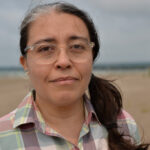
PhD 2020
Silvia Vasquez Olguin is now working as a Senior Lecturer at Ryerson University and Research Associate at York University. She has also worked as a lead teacher and research scholar at the University of Costa Rica and as an independent consultant for municipal councils and environmental NGOs working on water/shed protection and ecosystem conservation. She has a passion for sustainability and innovation to community engagement and project management to ensure community engagement, environmental awareness, cooperation, inclusivity, and wellbeing.
Read more on scholar’s research:
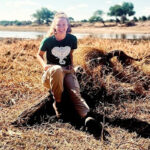
MES 2021
Read more on scholar’s research:
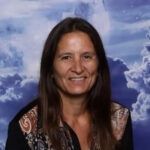
PhD 2022
Assistant Professor in Indigenous Environmental Stewardship, University of Guelph
Sue is an Anishinaabe kwe born and raised in Garden River First Nation. She has worked extensively with First Nation communities during the last 30 years in environment-related fields. She has her own consulting company, Ogamauh annag, that continues to work with First Nation communities and Elders as an Anishinaabe Advisor on environmental projects and policy analysis (i.e., watershed planning, source water protection, Anishinaabek law development, policy development, facilitation, strategic planning, report writing, environmental assessments, documenting Traditional Ecological Knowledge, and environmental management planning).
Read more on scholar’s research:
- Mino-Mnaamodzawin: Achieving Indigenous environmental justice
- Tying Indigenous and non-Indigenous worldviews to enhance environmental decision making
- Research Overview video
Research Spotlight: Understanding Anishinaabek G’giikendaaswinmin (knowledge) on N’bi (water) in the Great Lakes Territory for Water Governance
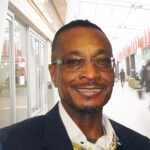
MES 2012
Education Director/CEO,Tree of Life Education Consultants
I chose to pursue a post graduate degree in Environmental Studies and Education. I was inspired by the teachings of His Imperial Majesty Haile’ Selassie who said: “Education is a means of sharpening the mind of man both spiritually and intellectually. It is a two edged sword that can be used either for the progress of mankind or for its destruction. Our constant desire and endeavor is to develop our education for the benefit of mankind.”

MES 2022
Campos is a filmmaker, impact producer, community organizer and extreme sports athlete. His films include Klabona Keepers (2022), Ru-Tsu (2020), The Radicals (2018), A Last Stand For Lelu (2016), Northern Grease (2013) and more than 50 shorts. Campos embeds himself in the community wherever he goes and is dedicated to combining social impact with his adventures in sport, activism and filmmaking. His previous projects have had a strong outreach focus that collaborated deeply with participants within his films. His work has focused on Indigenous land defense, Indigenous health models, climate justice and anti-racism. He is also the co-founder of the non-profit collective Beyond Boarding, and a board member of Rediscovery International. Campos is also currently an Impact Fellow for Story Money Impact, a Canadian organization growing the field of impact producing.
Read more on scholar’s research:

MES 2016
President & Principal Consultant, Providence International EDI Consulting
Tina Garnett is 6th generation Canadian, the descendent of an escape slave John Henry who arrived at the Great Lakes Black Settlement in 1831. Tina has been developing human rights based equity and inclusion policies and services with marginalized communities for over two decades. She is the current Human Rights & Inclusion Specialist with Hamilton Health Sciences’ Human Resources Department. Her work has been cutting edge work, such as her work in Northern British Columbia, where she co-founded an Indigenous youth organization that supported pregnant Indigenous youth in keeping their newborns; she was the person hired after the investigation at Children’s Aid Society of Toronto regarding the acute over-representation of Black children & youth in care – her role at CAST included a secondment as a research consultant with CUPE Ontario on their anti-racism and community hate resource kit. Some of her other roles includes various equity focused management roles in post-secondary institutions, and sexual assault centres.

MES 2017
Planner I, City of Brampton
I am currently a planner at City of Brampton, working with a team dedicated to community and resiliency. Our main objective is to deliver the 2040 Vision: a bold, new vision for what Brampton could and should be in 2040 and beyond. What makes this Vision special, is that it was created for the people, by the people – over 20,000 Bramptonians have been engaged to date and shared how they would like to see their city grow. As a Planner, the MES/FES Program expanded the breadth of my knowledge in the field of planning. The program taught me the importance of understanding a variety of disciplines within the planning stream to build better cities, communities and neighbourhoods.

Read more on the scholar’s research:

MES 2015
Founder and Director, Phoenix Rising Studio
Vero Diaz proudly developed her network while at EUC with the support of committed professors. Vero joined the EUC community in 2013, after a friend recommended the program. While in the program, she wanted to focus on decolonial arts, and develop her network with arts communities within Toronto and Latin America. When reflecting on her experience at EUC, she highlights beginning with a dream, and wanting to experiment. Throughout her years at EUC, Vero participated in mural art, poetry, and performance art. She regards EUC as a good place to continue to develop an artistic intensity, using multi-media forms, and intersectional community relationships. She regards the program as rigorous and demanding, and acknowledges that she was able to continue and move forward with the support of the networks she helped nourish.

Turning Tides: Sustainability Measures for Shark Conservation
Supervisor: Mark Terry
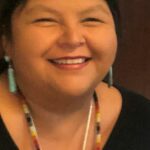
Anishinaabe Traditional Governance and Environmental Sustainability
Supervisor: Leesa Fawcett

Learn More
The Graduate Program in Environmental Studies at York is an exciting environment to pursue innovative, socially engaging, career-ready education. Contact our Graduate Program Assistant to learn more.
